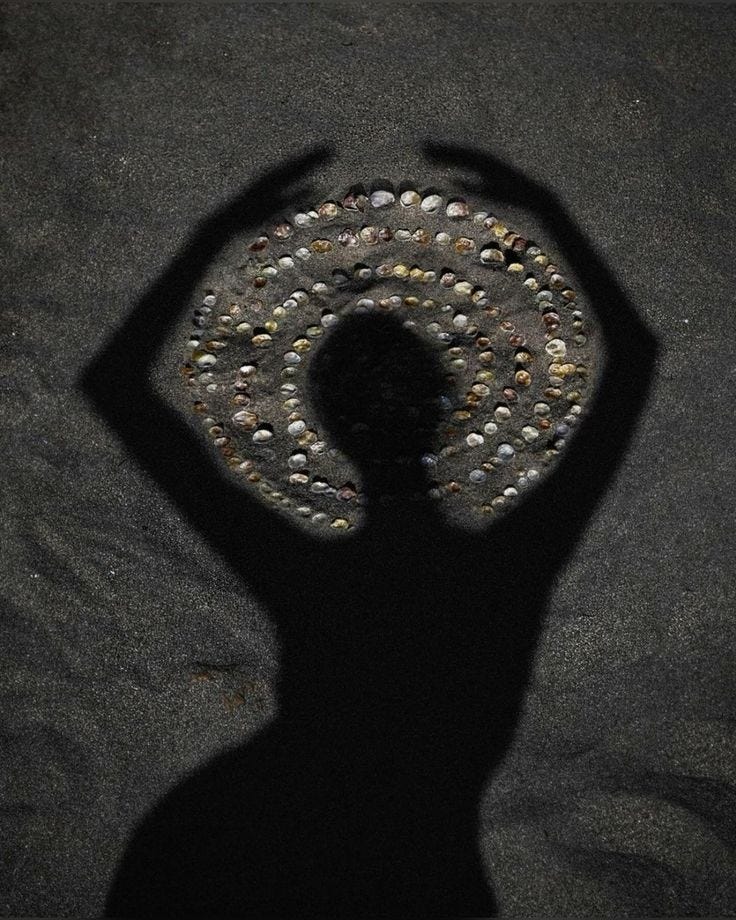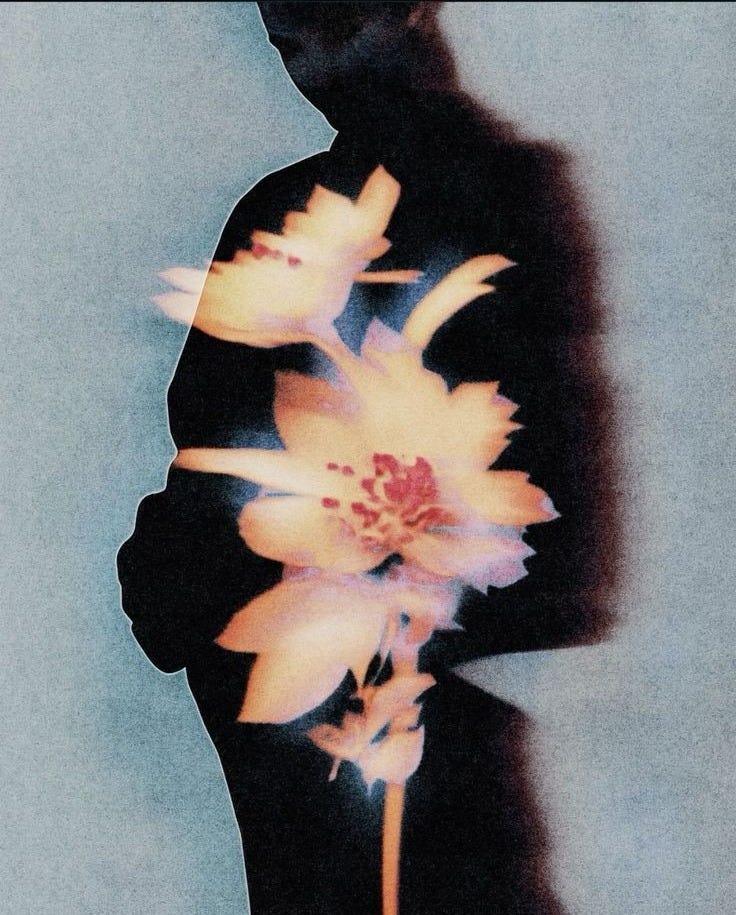There’s a lot being asked of our conscious leaders nowadays. They’re often expected to learn and implement various organizational strategies, developmental ideologies and theories while helping to support their team members’ wellbeing in the workplace, amongst various other things. These are all incredibly beneficial. Yet there is one painfully overlooked area that will thwart the healthy development of any of these aspects if it continues to remain unaddressed.
This area is the shadow. And it houses all of the abusive power dynamics, isms and phobias that still run amok within our organizations.

One of the many things I learned through my years of working within organizations is that, without fail, there is always a shadow. The parts that have been hidden - deliberately or not - from the conscious awareness of the members. The parts that have been exiled in an intangible fog of shame, fear, guilt and rage which looms over the organization, yet seems to have a mysterious way of disappearing when someone tries to name or grasp it.
On a subtle level, the shadow can contain the CEO’s unacknowledged sexism, homophobia or racism. This can then materialize into a pile of skeletons in the HR closet - where perhaps their unacknowledged racism has led to inappropriate comments, monitoring people of colour and preventing their progression within the company. Maybe they have allowed far too many accounts of sexual harassment to fly under the radar. Dusty, ancient scrolls of formal complaints pile up, denied by higher management, intended to be kept secret from the majority of team members forevermore.
Until one day, the closet bursts open and those secrets come to light in the most unexpected and undesirable ways, causing ripples of shock and disturbance within the team - a team who, despite wanting to believe that everything was fine, deep down knew that it was not. A team who somehow started to recollect their own memories of witnessing or enabling similar events - memories they themselves had suppressed.
The shadow can be particularly strong within leaders and groups who identify as liberal and progressive, for the sheer fact that their very sense of worthiness and belonging is intrinsically tied to the identity of being good, open-minded people. The need for this to be true can be so overwhelming that anything which falls outside of that remit gets automatically flung into the shadow.
I should know - the CEO I just mentioned is a real person, and I was one of the people of colour working there who was deeply impacted. It was a very progressive young peoples’ mental health charity; radical at times, and full of lovely therapeutically trained, social activist-type people who became my closest friends. Until I learned the painful way that all was not as it seemed. Amongst the racism, there were various complaints of sexual harassment from male team members; men who not only would have considered themselves feminists, but were also engaged in therapeutic and social work with young people. Not only did they reveal their own shadows, but in allowing these abuses to remain inadequately addressed, the CEO revealed hers too.
The macro reflects the micro, and vice versa. We’re seeing large scale abuses being exposed in celebrity culture, in politics, religious and spiritual groups and corporations. And while it’s easy to look at others and judge (trust me, I still automatically do), there’s very little going on out there that we don’t hold some semblance of in our own psyche.
Here’s the thing about our shadow; those parts of ourselves that are too painful to acknowledge, even to ourselves in the dead of night. They still exist, even when we bury them in the very back of our hearts and minds. Even when we compartmentalise them into the tiniest boxes, wrap them in layers and layers of bubble wrap and stuff them into the far corners of our closets.
The truth will always out.
Because it is powerful. And, contrary to what our fear tells us, the truth will always set us free. It may not feel like the classically utopian picture of freedom where our hair billows out around us as we run into the sunset. Rather, it’s an inner expansion. A freedom from our own internal imprisonment, built from shame. Shame to admit that we’re simply, magnificently human, flaws and all. That we all have our pettiness, our jealousy, our hatred, our rage, our buried, wild grief. That we’re insecure, we’re vulnerable and we’re really fucking hurt. That yes, we carry isms and phobias, and we’ve all normalised certain abuses to varying degrees. This is understandable given that the world we currently live in was born under the looming shadow of colonialism.
A shadow that we have barely even touched the edges of as a collective.
When people - particularly privileged benefactors of our carefully constructed social hierarchies - question why many of us are keen to talk about colonialism, I often hear the term ‘the past is in the past’. I can understand that. And yet I disagree. Not only is colonialism and the systems it birthed very alive and well, albeit wearing a slightly different mask than the shamelessly outright conqueror (at least, in most places), but the energy of what occurred is still very much alive in our collective energy field. If it wasn’t, it would not have sprung back out of the woodwork and into our mainstream consciousness with such vigour. If ignorance really led to bliss, believe me, we’d all be doing it.

The truth can sit patiently waiting for centuries until it is ready to be seen. It does not die, even if no-one acknowledges it openly. It does not fade away over time. It remains the same. And when collective consciousness rises to a point where we are ready to process and integrate it, it reveals itself.
It is not a punishment, however. Yes, there is much rage and grief in historically colonized communities, and in many cases, a deep desire for apology, reparations and genuine change. But rather than a punishment, it is a call for a deeper level of love to settle within our hearts for each other. A desire for those affected to be witnessed and humanised in their pain, their grief for what was lost and for what is still being endured within these systems. A desire for the basic dignity of genuine acknowledgment, so that we can all move forward, together. This requires a shift from fragility to sensitivity - something I will explore further in the future.
I used to be someone who remained stuck at the reparations part, when my shadow was still running the show. I was so gripped by my fear, rage and horror that all I wanted was for that to be acknowledged. I wanted to receive a genuine apology from those whose ancestors had colonized mine and from those who still benefitted from the unjust systems built thereafter. I could not imagine a world where we had effectively healed and moved forward together, even though that was what I truly desired.
But then something shifted. Through gently sitting with them and allowing them space to breathe in my heart and mind, my traumatized, rageful and despairing parts started to flow through me and make way for something better. For seeing things a little differently than before. Over time, I started to feel the world I actually desired becoming manifest in my inner landscape and taking shape in my outer reality. I’m grateful that after years of painful deep-diving into our collective colonial history, I grew healthily tired of it, ready to create a world beyond that.
To build that world together, our collective shadow must be addressed. We can’t bypass our way out of it, because what is buried will remain and fester in our shared unconscious and simply keep repeating itself. Projections, denial, fragility, domination, supremacy, physical violence, environmental ruin, genocide and war are all children of the unintegrated shadow.
These are vital first steps on the journey of responsible leadership. Knowing why we’re still dealing with the same abuses of power within our teams even in 2025 - and how they were birthed by the unholy trifecta of colonialism, capitalism and the patriarchy, is key to understanding how we can effectively go beyond it. This transformation requires much more than the tick-box Diversity, Equality and Inclusion trainings that were rolled out in a panic in 2020. These are just flimsy bandaids stuck onto a much larger gaping wound, and are often used as a convenient excuse to avoid the shadow work which patiently awaits us. Sitting with the parts of ourselves we have denied and giving them space to breathe, to tell their stories, before thanking them and letting them go.

When we hold ourselves equally accountable for facing and owning our shadows, we can start to make profoundly effective change within our organizations. We can’t expect issues like racism, sexism, transphobia or Islamophobia to be healed out there when we haven’t even faced them within ourselves first. To find out where they came from and what lies at their root. Because most often than not, they did not come from us, but the systems and structures that raised us all, as well as intergenerational trauma and the cultures we were exposed to.
And while shadow work isn’t for leaders who cling to the illusions of comfort and safety in their current identities and the worldviews, it is for those who are courageous enough to sit in the necessary discomfort of transformation. Where, on the other side, we find ourselves more connected to our own humanity and to that of others. Where the world feels a little brighter, bigger, and a heck of a lot more liberated. Where we discover the many passions and gifts we had also suppressed. It’s from this place where new and brilliant ideas spring forth - ideas that bring us forward as people and as responsible stewards of this Earth, our shared home. And we become leaders who have more capacity to steward our teams and organizations through their own shadow.
So if you haven’t already, I invite you to take a peek into the darkness and take that first step into the unknown, with courage, curiosity and hope. I have a feeling that it’ll be worth it.
For leaders wanting to do their shadow work but not sure where to start, I offer consulting sessions to gently guide you through the process.
For those navigating their own journey with grief and would like a guide through the underworld of death, grief and loss, you may find my book Half Woman Half Grief beneficial.
And for those who would rather listen in audio format, check out the how we lead podcast here.
Click here to explore my full collection of talks, podcasts, books and articles.




Ms. Maya, this is another electric piece of writing, and so, so resonant. This part in particularly hit right at home for me: "...The parts that have been exiled in an intangible fog of shame, fear, guilt and rage which looms over the organization, yet seems to have a mysterious way of disappearing when someone tries to name or grasp it." This was certainly the case one of the nonprofits I worked for which dealt with the maternal health issue obstetric fistula. For a while I was the only person of color and only male at a place where we served all women of color. This shadow was very real and showed up in a multitude of ways! That you've given voice to it here is so validating. I wasn't crazy! Ha! We must connect soon! ❤️